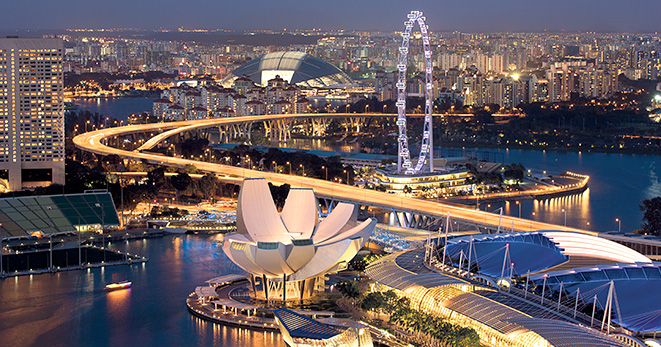The dispute between Beijing and Hong Kong is driving foreign investors increasingly to Singapore
In the last years, Beijing’s pressure on Hong Kong’s domestic politics has generated clear implications not just with regards to the political-administrative aspect of the island, but also affecting indirectly its economy. The riots in Hong Kong have warned foreign investors that they would begin to increasingly redirect their investments to Singapore, the second largest financial hub in Southeast Asia.
The triggering cause of this trend is precisely the political influence of China on Hong Kong: for the city-State, in fact, the definition of "one State, two systems", the one that was adopted in 1997, the year in which the United Kingdom gave back Hong Kong's sovereignty to the People's Republic of China, is fading away.
Last month the Heritage Foundation, an American think tank that deals with analyzing the data of all the countries of the world drawing up their economic characteristics, has decided to remove Hong Kong from the ranking and its data now are no longer available on the association's website: a severe blow for Hong Kong, which, from 1995 to 2019, was considered by the American foundation the country with the freest economy in the world, the perfect place for foreign investors.
The decision comes from the fact that Hong Kong, from a political-bureaucratic point of view, is no longer considered autonomous: the association has therefore decided to combine its data with China, ranked 107th among the freest economies. In light of these developments, Singapore smiles: having overtaken Hong Kong last year, today the small State continues to hold the top spot on the list with a score of 89.7, far ahead of New Zealand by almost six points.
If already in 2019 there were the first signs of an increasingly marked economic crisis for Hong Kong, the draconian law on national security, promulgated by Beijing last July, has caused some companies to run for cover towards the shores of Singapore. Deutsche Bank for example, stated its intention to move the office of the new CEO of the Asian area to Singapore, no longer considering Hong Kong a safe place. The new security law would affect two of the main pillars on which the strength and attractiveness of Hong Kong’s economy was based: the protection of property rights and the rule of law. For these reasons, another phenomenon that has been marked in the last two years is the decision of many companies to rely on arbitrary judges in other cities such as Singapore or London, fearing the lack of transparency of the new Hong Kong bureaucracy.
Even for business expansion, companies are looking more towards Singapore: according to a Financial Times survey, some credit companies and banks would show more interest in expanding their branches in Singapore rather than Hong Kong: on Linkedin, jobs position opened by UBS and JP Morgan in Singapore are eight times than those in Hong Kong, while Credit Suisse and Goldman Sachs have doubled their advertising campaign in Singapore.
However, not all the analysts agree with the decline of Hong Kong: the strong interest of tycoon and Chinese companies are giving new impetus to the island’s economy.
However, with its excellent results in terms of protection of property rights and government integrity, Singapore has the opportunity to establish itself as the main hub for international investments in the Southeast Asia.
By Alberto Botto






